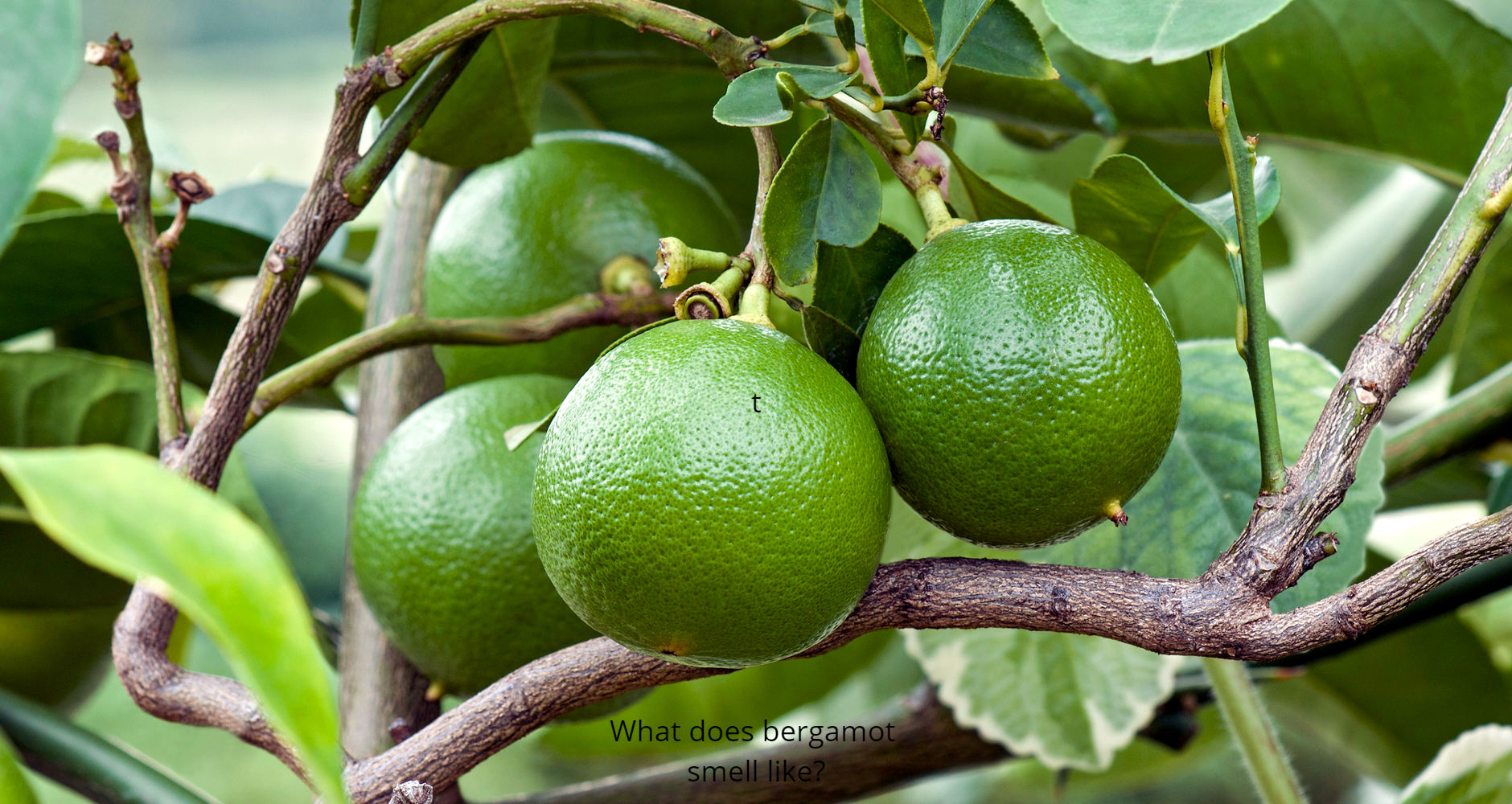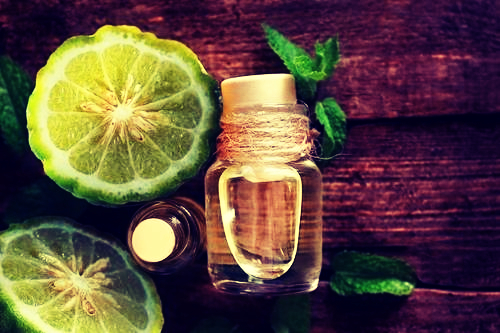For people who love refreshing scents and lights, then you may not skip bergamot. You can use this as a perfumery ingredient which is similar to other citrus scents. However, most of you may not be familiar with this ingredient. In this context, we will provide you with all the information regarding the bergamot and what bergamot smells like.

People often confuse bergamot with lime, however, bergamot fruit is a mix of both orange and lemon. It is a sunny scent that you can pair with many other perfume notes that are easy to wear.
Table of Contents
What Is Bergamot?
It is a citrus fruit that comes from a plant known as tropical Bergamia. You can find it in almost all the Mediterranean countries. Also sometimes known as bergamot orange because it has the size of an orange, irregular skin, and a bitter taste. It is usually yellow or green.
Also read: What Does Geranium Smell Like In Real
The Latin name of bergamot is Citrus Bergamia. You cannot eat fresh bergamot in general because of its acidic flavor. The flesh of the fruit is the main flavor of Earl Grey tea. It also makes its use as essential oils and perfume ingredients.
Where Is Bergamot Grow?

The origin of the Bergamot plant is from Southeast Asia. However, now you can find this plant on the Ionian Sea coast of Calabria which is situated in Southern Italy. It is an important crop and has become the symbol of Reggio di Calabria. Italy was unable to export bergamot during World War II. This is the reason why other countries produce their bergamot. These countries include Argentina, the Ivory Coast, Morocco, Algeria, Brazil, Tunisia, South-East Asia, and Turkey.
What Does Bergamot Smell Like?
Bergamot smells like citrus fruits. You can generally find it in cosmetics, perfumes, foods, aromatherapy, and drinks. It has a very refreshing citrus summer scent just like orange blossoms (ORANGE BLOSSOM PERFUME). It also contains a unique floral and spicy edge which is different from the other citrus fruits. Bergamot acts as a complementary agent to other scents such as sandalwood, jasmine, rosemary, and vetiver.
WHAT IS BERGAMOT GOOD FOR?

Bergamot has been an important ingredient since ancient times as it was used in many folk medicines, ayurvedic medicines, and also as homeopathic treatments. Though we don’t have any clear evidence that bergamot oil can treat any condition according to researchers we have the following benefits of
bergamot:
Also read: What Does Musk Smell Like in real
- Regulates mood: Bergamot oil is beneficial in aromatherapy to trigger the release of serotonin and dopamine in the brain. These hormones are responsible for regulating the mood. Like various other essential oils, bergamot oil can also help you in reducing the symptoms of depression.
- Reduces inflammation and pain: Various studies have shown that the compounds present in bergamot, linalool, and carvacrol, Have anti-inflammatory and anticonvulsant capabilities. You can enjoy these benefits of bergamot by applying the bergamot oil in various methods.
- Lowers cholesterol: A review study that was published in Integrative Food, Metabolism, and Nutrition has shown that the compounds found in bergamot, namely Brutieridin and melitidin, help in lowering Cholesterol. These compounds work similarly to statin drugs that activate the proteins that are useful in the regulation of fats and sugar.
- Fights food poisoning: The compound Linalool in bergamot also helps in destroying various types of bacteria. These bacteria are responsible for food-borne diseases. However, there is a further need for research on this topic.
- Reduces stress: In some studies in Japan on women, it was found that when bergamot is mixed with water vapors, it helps in the reduction of fatigue and anxiety.
Side Effects Of Bergamot Oil
In some people, bergamot oil can cause irritation to their skin. This happens generally when you don’t dilute it with some carrier oil. Hence, you should never apply bergamot oil at full strength to your skin.
Bergamot contains a substance namely bergapten in it. This compound is highly phototoxic. You may suffer through a serious skin condition (Photodermatitis) when your skin gets exposed to UV rays after you apply bergamot oil. The symptoms of this skin disease are swelling, pain, blistering, redness, and rash.
Children and pregnant women should always consult their doctors before using any essential oil for any particular purpose.
To Sum up
Bergamot is a popular ingredient in your lovely scents. We have already seen what bergamot smells like, its benefits, and some of its risks. There are some good benefits of bergamot, however, you cannot just ignore its side effects. Keeping in mind its side effects, you can enjoy the bergamot essential oil to reduce cholesterol, stress, anxiety, and inflammation.

